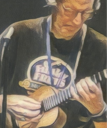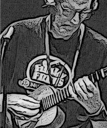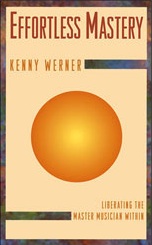Studying Music
The Elements of a Successful
Music Program
Music Program
These are if you're going it alone or with a qualified teacher.
You’re born with a spark... to search for the truth, for the best you can be. Practice. Discipline. Preparation. Try and try again. Then one day you‘re on top and they say you're an overnight success, a “natural.” You smile, you know.— Anonymous
Here Are A Few Of The Elements That Would Be Typically Covered In A Well Rounded Musical Education
These are if you're going it alone or with a qualified teacher.
Technique
Technique is the physical control and coordination needed to play an instrument or sing. It involves position, efficiency of motion and effort, as well as exercises to develop specific physical skills.
LESSON: Technique Lessons
I'm a firm believer that your never going to do anything musically that your fingers haven't done before. They can be trained to a very high level to do what they have been trained to do and hopefully at the right time.— Curt Sheller
Theory
Theory is the established body of principles behind music. It includes scales and chord building, intervals, progressions, resolution, harmony, motion, power, color, chord substitution, keys and time signatures, rhythm, melody, etc.
From a core foundation of the principles of music you can build and derive additional information from that same foundation.
Basically, just understanding it all works.
LESSON: Theory Lessons
Ear Training
Ear Training is the development of the active and passive capacity to relate to music aurally. It includes the ability to recognize and reproduce melodic and harmonic intervals, chords, chord progression, rhythm, melody and harmony.
LESSON: Ear Training
Repertoire
Repertoire includes the songs within a musician's performance ability. These songs maybe memorized or read. They may be literal reproductions or creative interpretations.
LESSON: Repertoire Lessons
Improvisation
Improvisation is the ability to spontaneous create melody over a predetermined chord progression. It involves scales, alternate fingerings, arpeggios, intervalic development, sequences, embellishments, superimposition, rhythm, motifs, development techniques and idiomatic considerations.
LESSON: Improvisation Lessons
Songwriting
Songwriting is the creation of original music based on a single melodic line with a chord progression. Lyrics may or may not be included.
LESSON: Songwriting Lessons
Reading
Reading is the ability to reproduce music from written notation. It includes five phases; note recognition / alternate note locations, rhythm recognition, fingering considerations, communication terminology and interpretation.
Reading can be at a casual pace to learn a musical passage or at a pro level having never seen the music before.
LESSON: Reading Music Lessons
Musical Idioms
Musical Idioms is the study of music and the musical styles it involves well developed categories as; Rock, Blues, Country, Jazz, Bluegrass, Classical, Folk, Urban and Fusion. It also includes subdivisions and specializations.
LESSON: Music Idioms / Styles Lessons
Arranging
Arranging involves the choice of instruments, tempo, rhythmic feel, form, intros, endings, interludes, solos, harmonies, and instrumental accompaniment of a song.
LESSON: Arranging Lessons
Composition
Composition is the creation of original music based on multiple simultaneous and compatible melodies. It historically involves the classical forms but frequently includes more sophisticated levels of contemporary music.
Orchestration
Orchestration involves the choice of instruments for a composition. This choice is based on the ranges and colors of the instruments which best represent the mood and creative intent of the composer.
Interpretation
Interpretation involves the ability to perform a song or composition in a unique and personal way. These skills involve a interrelated set of disciplines which include, theory, ear training, technique, dynamics, embellishments, phrasing, and rhythmic flexibility.
All this leads to the development and nurturing of the artist within us all.
Effortless Mastery: Liberating the Master Musician Within, Book & Includes On-line Down-loadable code
"Effortless Mastery is a book that the world really needs. It was not written by a philosopher or an academic. Kenny Werner, is one of my favorite pianists I've ever had the pleasure of working with, and in my opinion one of the best pianists living on the planet. Kenny teaches that 'The joy of practicing is concentration. The joy of playing is liberation.' Effortless Mastery teaches the seeker how to achieve both at the highest levels. It also shows how to practice effectively, promoting real growth and how to play and perform free from fear and self-judgment. I highly recommend this book."
- Quincy Jones
- Quincy Jones
🚀 🚧 End of LearningUkulele.com Site Content 🚧 🌍




.jpg)